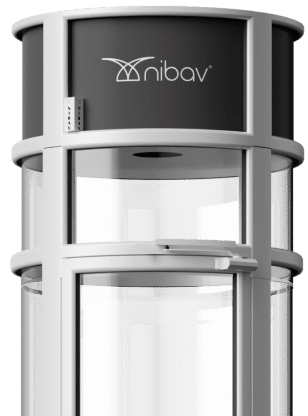Table of Contents
- 1. Introduction
- 2. Understanding the Need for Senior Independence
- 3. The Role of Home Elevators in Enhancing Mobility
- 4. Safety Benefits
- 5. Convenience and Comfort
- 6. Boosting Confidence and Mental Well-being
- 7. Maintaining Social Connections
- 8. Increasing Home Accessibility
- 9. Customization Options
- 10. Cost-Effective Solutions
- 11. Future-Proofing Your Home
- 12. Comparing Home Elevators to Other Mobility Solutions
- 13. Real-Life Stories
- 14. Choosing the Right Home Elevator
- 15. Conclusion
Why Home Elevators Are the Perfect Solution for Senior Independence
1. Introduction
Maintaining independence is a key concern for seniors as they age. Home elevators offer a practical and elegant solution to mobility challenges, ensuring seniors can navigate their homes with ease and confidence. This article explores why home elevators are the perfect solution for enhancing senior independence.
2. Understanding the Need for Senior Independence
Independence is crucial for the mental and emotional well-being of seniors. It allows them to live with dignity, maintain their routines, and stay connected with their loved ones. Mobility issues can severely impact this independence, making solutions like home elevators essential.
3. The Role of Home Elevators in Enhancing Mobility
Home elevators significantly enhance mobility by providing a safe and efficient way to move between floors. Unlike stairs, which can be daunting and dangerous for seniors, elevators offer a smooth, effortless ride, reducing the risk of falls and injuries.
4. Safety Benefits
Safety is a top priority when considering mobility solutions for seniors. Home elevators are equipped with numerous safety features such as:
- Emergency alarms: Alert others in case of an emergency.
- Automatic braking systems: Prevent uncontrolled descents.
- Backup power: Ensure the elevator operates during power outages.
- Non-slip flooring: Reduce the risk of falls within the elevator.
These features make home elevators a safe option for seniors, giving them and their families peace of mind.
5. Convenience and Comfort
Home elevators provide unparalleled convenience and comfort. Seniors can easily transport groceries, laundry, and other items between floors without physical strain. The spacious and well-designed cabins ensure a comfortable ride, making everyday tasks easier and more enjoyable.
6. Boosting Confidence and Mental Well-being
Using a home elevator can significantly boost a senior’s confidence and mental well-being. It eliminates the fear and anxiety associated with navigating stairs, allowing seniors to move freely and confidently within their homes. This sense of independence positively impacts their overall quality of life.
7. Maintaining Social Connections
Home elevators facilitate social interactions by making it easier for seniors to host family and friends. They can move around their homes with ease, ensuring they remain active participants in social gatherings and maintain strong connections with their loved ones.
8. Increasing Home Accessibility
Residential elevators dramatically increase home accessibility, making every floor easily reachable for seniors and individuals with mobility challenges. This is particularly beneficial in multi-story homes, where navigating stairs can be a significant barrier.
9. Customization Options
Home elevators can be customized to meet specific needs and preferences. Options include:
- Cabin size and shape: To fit different spaces.
- Finishes and materials: Such as wood, stainless steel, or glass.
- Lighting: Soft, ambient lighting to create a comfortable atmosphere.
- Additional features: Built-in seating or handrails for extra support and safety.
10. Cost-Effective Solutions
While the initial cost of a home elevator can be high, it is a cost-effective solution in the long run. Home elevators:
- Increase property value: Making them a worthwhile investment.
- Reduce the need for assisted living: Allowing seniors to live independently for longer.
- Lower healthcare costs: By preventing falls and related injuries.
Financing options are also available to make home elevators more affordable.
11. Future-Proofing Your Home
Installing a home elevator is a forward-thinking decision that future-proofs your home. It ensures that the home remains accessible as the needs of the occupants change over time, making it a valuable addition for aging in place.
12. Comparing Home Elevators to Other Mobility Solutions
Home elevators offer several advantages over other mobility solutions like stairlifts and ramps:
- Stairlifts: While useful, stairlifts can be uncomfortable and require significant physical effort. Home elevators provide a more comfortable and elegant solution.
- Ramps: Ramps can take up a lot of space and are not always practical in multi-story homes. Home elevators require less space and offer a more seamless integration.
13. Real-Life Stories
Hearing from seniors who have benefited from home elevators can provide valuable insights:
- Richard: A 64-year-old retired executive, found his home elevator essential for maintaining his independence and mobility.
- Nicole: A 68-year-old grandmother, uses her home elevator to safely access upstairs bedrooms, significantly reducing her fall risk.
These real-life stories highlight the practical benefits of home elevators and their impact on senior independence.
14. Choosing the Right Home Elevator
When choosing a home elevator, consider the following:
- Assess mobility needs: Understand the specific needs of the senior.
- Evaluate different types: Compare hydraulic, traction, pneumatic, and chain-driven elevators.
- Consider safety features: Ensure the elevator has essential safety features.
- Look for customization options: Choose a design that fits your home and preferences.
- Compare costs and financing options: Get quotes from multiple manufacturers and explore financing plans.
15. Conclusion
Home elevators are an ideal solution for enhancing senior independence. They offer safety, convenience, and comfort, significantly improving the quality of life for seniors. By carefully considering the options and choosing the right elevator, you can ensure that your home remains accessible and comfortable for years to come. Investing in a house elevator is a step towards maintaining independence, dignity, and a higher quality of life for seniors.
Get in touch with our home elevator experts now and experience your home with a whole new level of luxury and comfort.
Talk to Our Experts